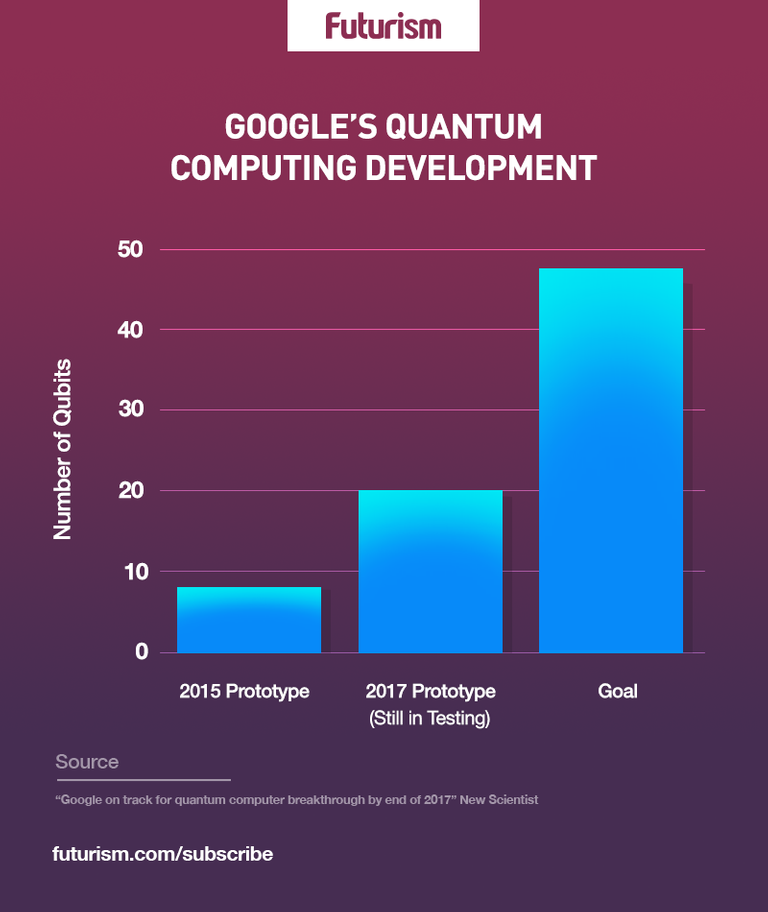
Google is leading the charge in the world of Quantum Computing. Now on schedule to produce a 49 qubit chip, which would achieve quantum supremacy by the end of 2017. This is a critical step along the way to functional quantum computers that can achieve problems far beyond the capacity of traditional systems.
This computer will use qubits made of superconducting circuits. Each qubit is prepared in a precise quantum state based on a two-state system. The test will be a milestone in quantum computer technology. In a subsequent presentation, Sergio Boixo, Martinis’ colleague at Google, said that a quantum computer with approximately 50 qubits will be capable of certain tasks beyond anything the fastest classical computers can do.

Google’s 49-qubit chip will allow them to develop a 49-qubit quantum system that can solve problems that are far beyond the capacity of ordinary computers: Google calls this goal quantum supremacy. The 20-qubit system that the Google quantum computing team is now working on currently boasts a “two-qubit fidelity” of 99.5 percent. The higher the rating, the fewer errors the system makes. Quantum supremacy demands not only a 49-qubit system, but also sufficient accuracy to achieve a two-qubit fidelity of at least 99.7 percent—which Google is on track to deliver by the end of 2017
It is important not to get carried away with numbers of qubits, says Michele Reilly, CEO at Turing Inc, a quantum start-up. It’s impossible to really harness the power of these machines in a useful way without error correction, she says – a technique that mitigates the fickle nature of quantum mechanics.
Ho says it will be 2027 before we have error-corrected quantum computers, so useful devices are still some way off. But if Google can be the first to demonstrate quantum supremacy, showing that qubits really can beat regular computers, it will be a major scientific breakthrough, reports New Scientist.